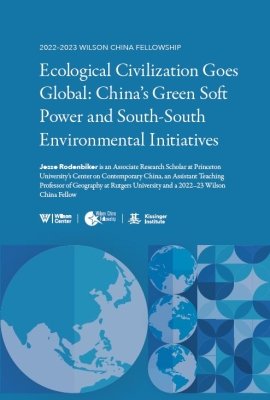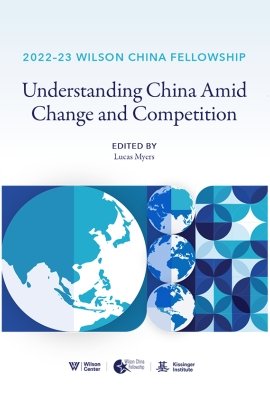Jesse Rodenbiker
2022-23 Wilson China Fellow
Professional Affiliation
Associate Research Scholar at the Paul and Marcia Wythes Center on Contemporary China at Princeton University, Assistant Teaching Professor in the Department of Geography at Rutgers University-New Brunswick, and a fellow of the American Council of Learned Societies
Expert Bio
Jesse Rodenbiker is Associate Research Scholar at the Paul and Marcia Wythes Center on Contemporary China at Princeton University, Assistant Teaching Professor in the Department of Geography at Rutgers University-New Brunswick, and a fellow of the American Council of Learned Societies. He is a human-environment geographer and interdisciplinary social scientist focusing on environmental governance, urbanization, and sustainable development in China and globally. Rodenbiker is the author of Ecological States: Politics of Science and Nature in Urbanizing China (2023) with Cornell University Press. His work has been published in the Annals of the American Association of Geographers, International Journal of Urban and Regional Research, Environment and Planning E: Nature and Space, among other venues.
Wilson Center Project
Ecological Civilization Goes Global: China' South-South Conservation Initiatives
Project Summary
Ecological Civilization Goes Global considers China's conservation initiatives in Global South contexts. During 2021 and 2022 China took a lead role in the 15th United Nations Biodiversity Conference, which was themed "Ecological Civilization: Building a Shared Future for All Life on Earth." Ecological civilization building has been the Chinese state's way to differentiate its approaches to conservation and sustainability from the West. During these meetings, China not only released the Kunming Declaration calling for greater prioritization of biodiversity protection and conservation, but also spearheaded the Kunming Biodiversity Fund, which supports conservation initiatives in developing countries. The study examines how China's South-South conservation initiatives are shaping environmental governance and global sustainable development trajectories.
Insight & Analysis by Jesse Rodenbiker
- Publication
Ecological Civilization Goes Global: China’s Green Soft Power and South-South Environmental Initiatives

- Publication
Executive Summary - 2022-23 Wilson China Fellowship
- By
- Matthew Erie,
- Kyle Jaros,
- Mao Lin,
- and 12 more

- Publication
2022-23 Wilson China Fellowship: Understanding China Amid Change and Competition

- Past event
- Strategic Competition
Wilson China Fellowship Conference 2023



